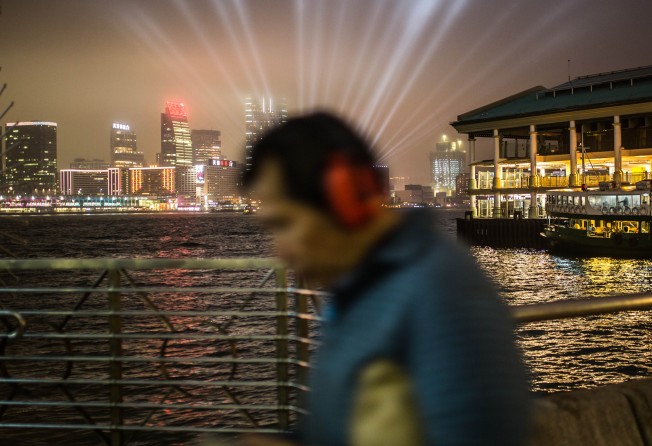Hong Kong must not give up on those who have lost hope
Paul Yip says mental well-being is a cause for concern in our stressed city

The World Health Organisation defines mental health as "a state of well-being in which the individual realises his or her own abilities, can cope with the normal stresses of life, can work productively and fruitfully, and is able to make a contribution to his or her community". So what would we say about the current level of mental well-being of the Hong Kong population?
The government-funded Hong Kong Mental Morbidity Survey, which was completed in 2013, found that about one in six Hong Kong people suffers from anxiety and depression. The WHO suggests that depression will inflict the largest burden of all diseases in the next two decades, and estimates that, globally, over 800,000 people commit suicide each year.
In Hong Kong, the suicide rate has fallen from its historical high, but older adults still have a relatively high suicide rate, and the recent increase in suicides among adolescents and young people is of particular concern.
Furthermore, 6,000 to 8,000 people are being admitted annually to public hospitals due to self-harm in Hong Kong. It costs the public hospital system some HK$60 million to HK$80 million every year to provide medical treatment.
Relationship issues are the most commonly claimed cause among patients who self-harm, whether it be with a spouse, friend or parent.
Sometimes, I wonder how we can promote mental health in such a stressful city as Hong Kong. What can be done to effectively enhance resilience in the community, especially for our youth, in order for them to fulfil their abilities and dreams?
Our long working hours coupled with relatively low wages, especially among low-skilled or unskilled workers, have been shown to be detrimental to mental well-being. Upward mobility has become more difficult for young people due to the insufficient expansion of our economic base. Finding a meaningful job is not easy and trying to make any contribution to the community is even more difficult. A strong sense of helplessness is not uncommon, especially among our young.
Hong Kong youths must find hope in their lives to build up resilience to face any adversity. Based on our study, many suicidal people feel some sort of disconnection - from social support, mental health care, or even from society as a whole. These people usually cannot find alternative ways to achieve their goals once they are blocked.
Social media offers an opportunity for those unable to express themselves using traditional means. Innovative ways to engage our vulnerable youth using social media have recently been developed.
Furthermore, we need to show more empathy to those who post messages of distress, which can be a cry for help. Any inconsiderate message we post in response could have a harmful effect. We have to learn to be responsible netizens.
We have to be receptive, innovative and creative in developing strategies that can identify at-risk individuals, and connect them with the appropriate help and support. There has never been enough government support for dealing with mental health; community-based programmes making use of local resources should be promoted.
Policymakers and stakeholders from different sectors of society have to be collectively responsible for mental health enhancement for the whole population.
More resources and training should be given to carers. More public campaigns should be conducted to get rid of the stigma associated with mental health problems, while individuals should be encouraged to seek and accept help.
Furthermore, promoting healthy living and a work-life balance is important.
We are delighted to see that more professional organisations are developing online support services, engagement activities, intervention modules and therapy programmes. There are also a number of hotlines and social media platforms available for vulnerable people to seek help.
It is a sign of strength for people to seek help when they are in trouble. Let's all show some empathy for our fellow citizens to rebuild and repair society.
Paul Yip is director of the Centre for Suicide Research and Prevention at the University of Hong Kong